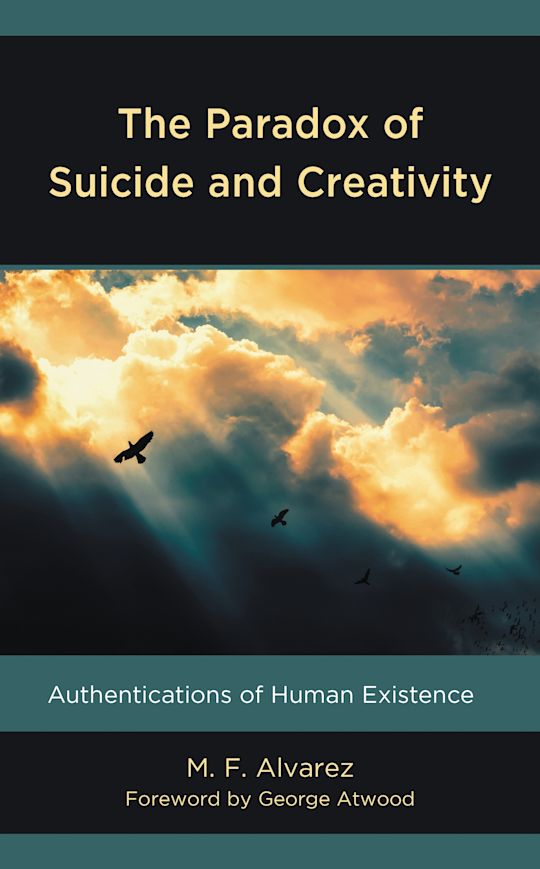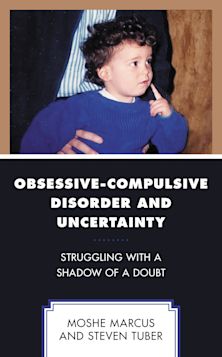- Home
- ACADEMIC
- Psychology
- Psychology - Other
- The Paradox of Suicide and Creativity
The Paradox of Suicide and Creativity
Authentications of Human Existence
The Paradox of Suicide and Creativity
Authentications of Human Existence
You must sign in to add this item to your wishlist. Please sign in or create an account
Description
If creativity is the highest expression of the life impulse, why do creative individuals who have made lasting contributions to the arts and sciences so often end their lives? M.F. Alvarez addresses this central paradox by exploring the inner lives and works of eleven creative visionaries who succumbed to suicide. Through a series of case studies, Alvarez shows that creativity and suicide are both attempts to authenticate and resolve personal catastrophes that have called into question the most basic conditions of human existence.
Table of Contents
Introduction
Chapter 1: 'You Will Rescue Objects from Oblivion': The Case of Iris Chang
Chapter 2: 'Haunted by the Vivid Memories of Killings': The Case of Kevin Carter
Interlude I: Is Creativity Intrinsically Healing?
Chapter 3: 'Give Me One Good Reason to Stay': The Case of Phyllis Hyman
Chapter 4: 'A Dry Place to Call Their Home': The Case of Kurt Cobain
Chapter 5: Individuation through Poetry and Death: The Case of Sylvia Plath
Interlude II: Creativity and Temporality
Chapter 6: 'The Soul We Have Loved, the Soul that Has Left Us': The Case of Jeremy Blake and Theresa Duncan
Chapter 7: A Lifelong Project of Resurrection: The Case of Alan Turing
Interlude III: Suicide as Authentication of the Self
Chapter 8: Existence through Annihilation: The Case of Yukio Mishima
Chapter 9: 'Beauty Is a Dissident Force': The Case of Reinaldo Arenas
Chapter 10: The Drama of the Disintegrating Self: The Case of Robin Williams
Interlude IV: The Medicalization of Life and Death
Conclusion
References
Product details
| Published | Nov 12 2020 |
|---|---|
| Format | Ebook (Epub & Mobi) |
| Edition | 1st |
| Extent | 204 |
| ISBN | 9781498523837 |
| Imprint | Lexington Books |
| Publisher | Bloomsbury Publishing |
About the contributors
Reviews
-
The Paradox of Suicide and Creativity is a riveting and provocative foray into “phenomenological contextualism” and “psychobiographical methodology” by a scholar well suited to lead us into such complexities and conundrums.
Omega - Journal of Death and Dying
-
How is it that creative people may spiral into suicide? Alvarez’s amazing and notable book is written for you whether you seek philosophical or scientific answers or whether you are close to someone clinging to the precipice between life and death. Alvarez takes you through and then beyond the medicalizing of suicide, beyond counting and classifying the traumas. Take a breath and delve into deep comparative case studies. These stunning people cross the boundaries of creative endeavor from mathematics to music, from history to theater, from many parts of the globe, across genders and ages. Walk with them as they make 'restitutive…pathways of emergence.' Despair as they are choked off and creativity loses its power. Grieve as they turn to suicide irrevocably. Alvarez’s book does not let the reader off easily. The state of mind for delving into the lives of eleven unique individuals who committed suicide and added to the creative moments of our humanity is a hard one and a perplexing one and is filled with trauma. When you read Alvarez your heart may break and yet, your mind will be clearer as you look at creativity in a new light and grasp his insights into the varied dimensions of suicide.
Jeanette M. Haviland-Jones, professor emerita, Rutgers University; author of The Hidden Genius of Emotion
-
'To study suicide up close demands vulnerability, an open mind and heart,' Alvarez writes, and the same is true for studying creativity. Alvarez brings extraordinary courage, imagination, and intelligence to his visionary exploration of the confluence of creativity and suicide. By bravely exploring the weight of trauma and loss on the creative processes and lives of eleven artists as diverse as Iris Chang and Robin Williams, Alvarez both demythologizes and contextualizes the many-layered stories and histories that infuse the lives of his subjects. Alvarez also, through four brilliant interludes, dives into the deep sea of what creativity is and needs to thrive over time and in concert with culture and the self, concluding that no single theory can encompass why creativity is a saving grace or not. What matters, Alvarez tells us, is ‘that we share our stories with empathetic others, and realize how our personal narratives are part of a larger, communal myth, bound together by our shared humanity.’ His call here is to dissolve the generalizations that diminish and seek to domesticate the wild power of the creative and those who create, especially so ‘that we express the meaning of vitality and suffering in countless ways.’ The breadth and depth of this revolutionary book speaks of our essential nature, including what it is to suffer, learn, lose, and perceive in concert with creativity. Likewise, just as poet William Stafford said, anyone with a heartbeat is in the rhythm business; this book's focus on what it means to be human makes it essential reading.
Caryn Mirriam-Goldberg, poet laurete of kansas emerita; author of The Sky Begins at Your Feet
-
Not one to shy away from the dark side of emotion, Alvarez has written a penetrating account of the inner lives of artists of our time for whom suicide became a compelling alternative to living in constant psychological pain. This landmark book explores how the mind (and culture for that matter) endeavors to keep fear and dread at arm’s length and sometimes fails. Alvarez offers a fresh perspective on the foundations of creativity as one of the mind’s survival tools that paradoxically and tragically can lead to the destruction it was intended to avoid.
Dan Ogilvie, professor emeritus, Rutgers University; author of Fantasies of Flight
-
Suicide can feel like a closed door. It is difficult to grasp in all its complexity and offers many questions that can never be answered; thus, individuals may be defined solely by this final act. Alvarez opens this door wide to consider the vibrant souls of eleven artists whose lives ended by suicide. Instead of repeating trite medicalized explanations, Alvarez embraces these individuals’ creative genius and opens them up as people to be celebrated, people to be mourned, and people to be loved, leaving us a rich legacy undiminished by suicide. He explores the creative encounter as an act of risk in embracing the meaning of trauma, violence, war, alienation, injustice, illness, suffering, and our place in the universe. Resisting generalization through careful study, his rich and detailed biographical accounts leaves one with a new appreciation and sense of resonance with these artists, which promotes a desire to continue to explore their creative work. The Paradox of Suicide and Creativity is a profound work of phenomenological scholarship that wonderfully complicates reductive narratives of suicide and our understanding of what it means to live creatively.
James Sparrell, Goddard College
-
Examining the relationship between creativity and suicide, Alvarez writes a biting critique of the medical model, big pharma, and those who make sense of suicide by reducing it to a person’s malfunctioning biochemical systems. Alvarez shifts from medicalization’s ‘something is wrong with you’ toward an empathetic stance that invites the reader to connect with the pain and despair that was lived by the eleven people featured who we come to know more fully. This book is a must-read for people and practitioners who want to broaden their understanding of suicide to include the very real and very painful circumstances in which some of us live … and die.
Jolane Flanigan, Rocky Mountain College

ONLINE RESOURCES
Bloomsbury Collections
This book is available on Bloomsbury Collections where your library has access.


































